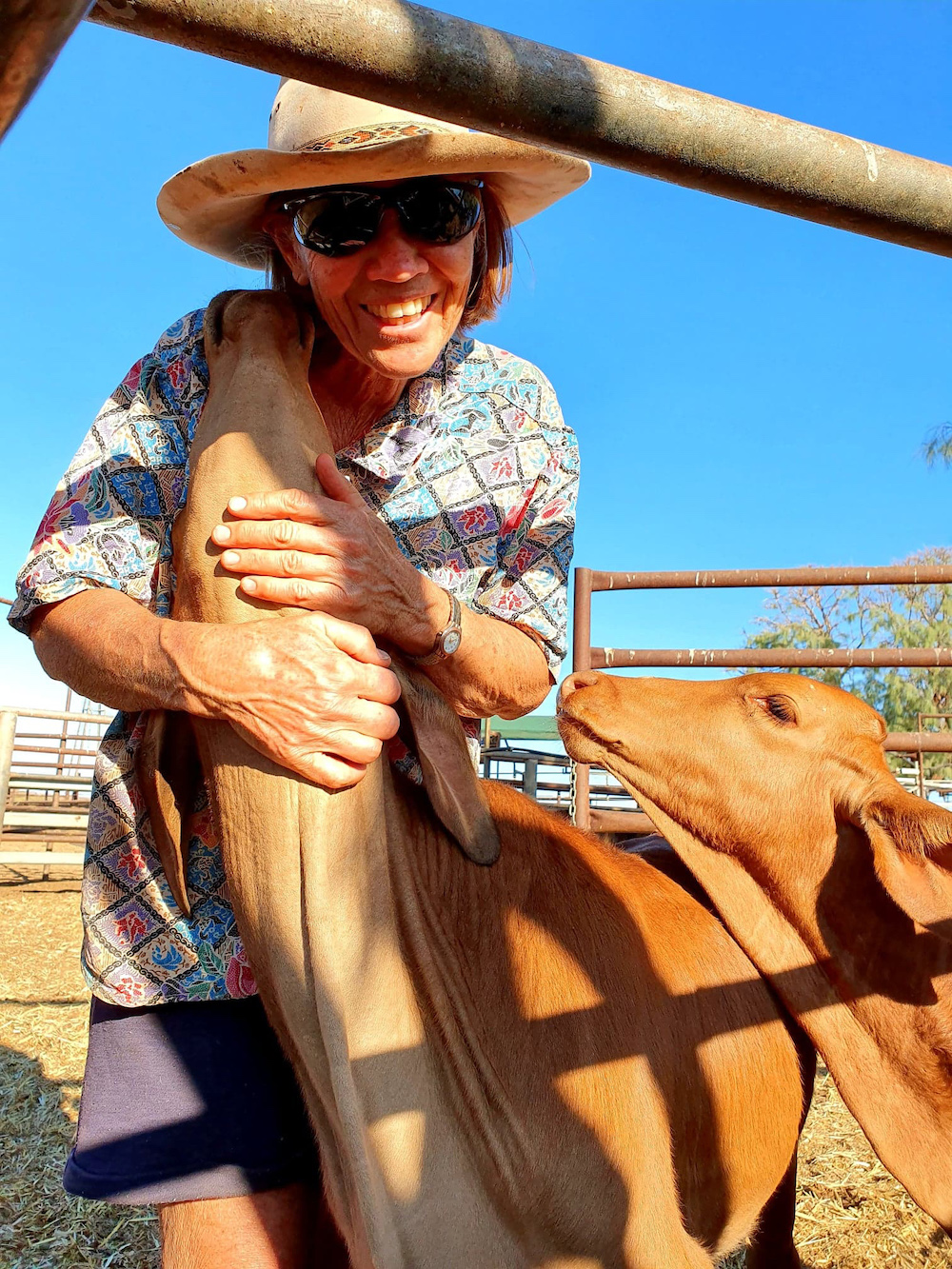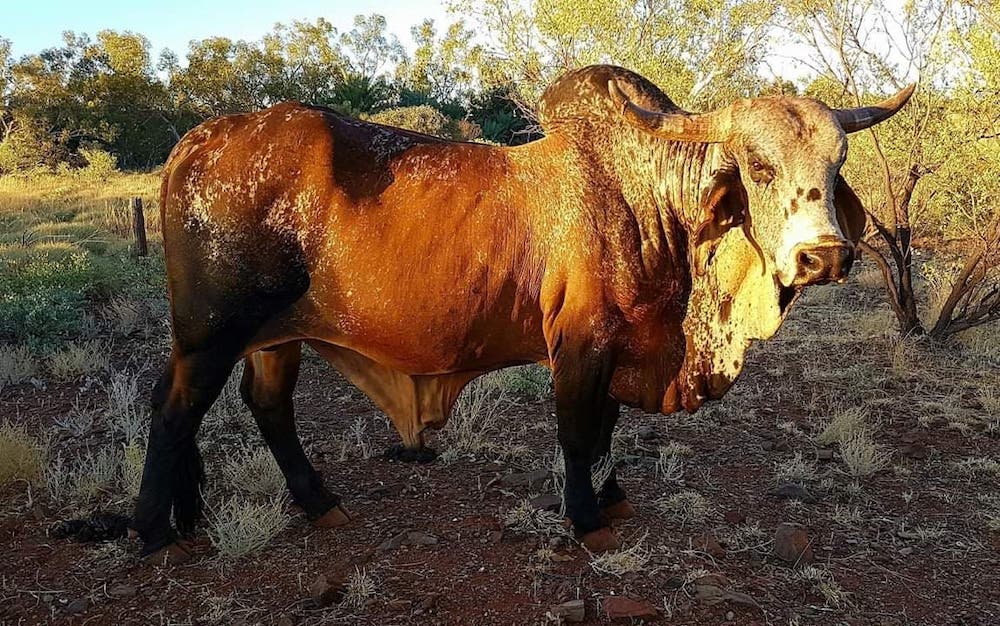When it’s time to admit defeat
Written by Aticia Grey – Glenflorrie Station
The hardest part is to know when it’s time to admit defeat.
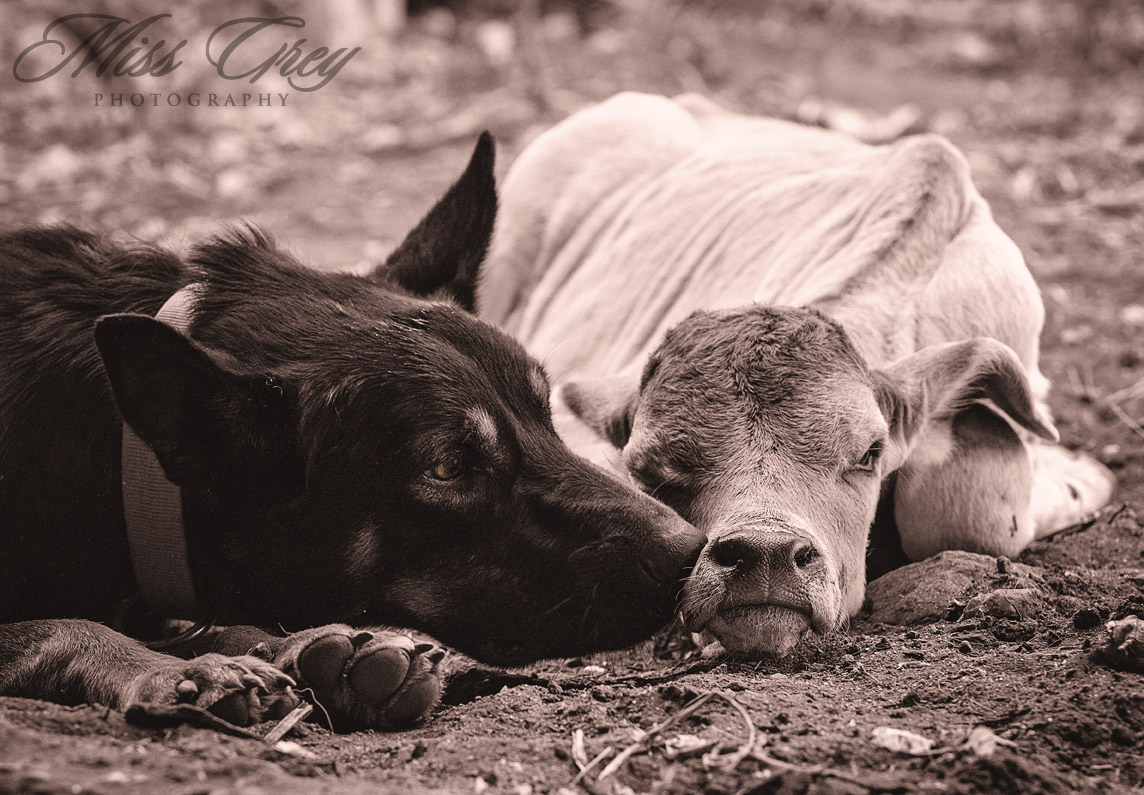 Zen & a young premature calf saved via cesarean & survived.
Zen & a young premature calf saved via cesarean & survived.
Raising orphan calves is something we have always done here at Glenflorrie. My parents taught me early on the value of compassion and Dad would bring the calves home while Mum and I warmed up the bottles. But sometimes it is more compassionate to reach for the gun and knowing when it’s time to make that call is one of the hardest lessons we have to learn. And, it is still one that leaves me second guessing myself so often.
Poddies can be orphaned for a number of reasons:
- The cow might have bottle teats so the calf can’t hook on and get a drink, slowly perishing if not found.
- Mis-mothering during the mustering season is probably the most common cause in a lot of cases and no matter how careful you are to try and minimise this, it often cannot be avoided completely when handling larger numbers of stock.
- Some calves are abandoned by their mothers for reasons unknown and some you soon learn there was a reason why, usually the hard way.
- Then there are the survivors of dingo/wild dog predation and my least favourite;
- drought.
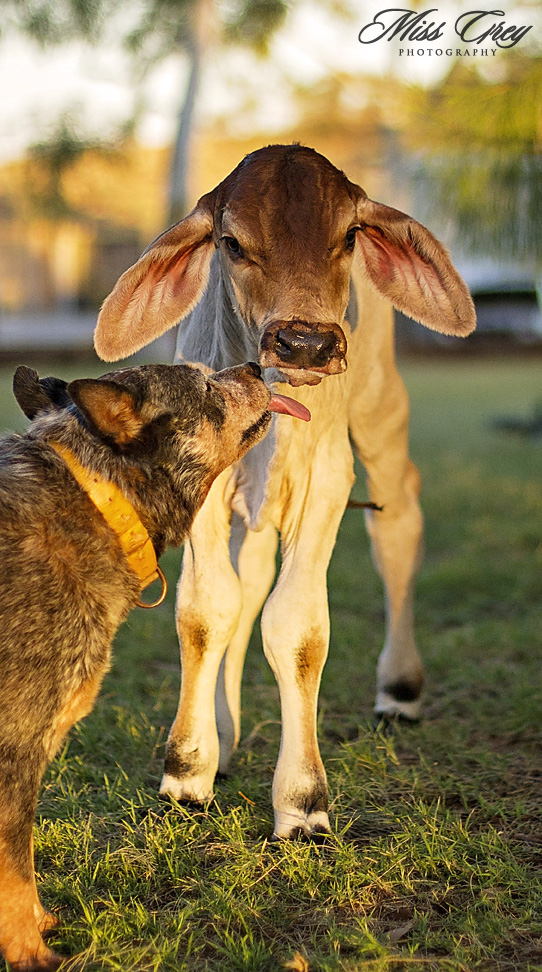 A young calf & his nursemaid, Leah who would sleep by a sick calf’s side on the lawn till they were out of the woods.
A young calf & his nursemaid, Leah who would sleep by a sick calf’s side on the lawn till they were out of the woods.
Over the years we’ve had nearly every imaginable reason for a calf to need help, land on our back lawn. One beautiful big red Brahman bull calf was left at a water point, abandoned seemingly in perfect health. 3 days later, he was going rapidly downhill with only an expanding belly to indicate an issue and we learnt from a knowledgeable vet that during the birthing process, large calves can sometimes end up with a ruptured bladder and there was nothing we could do to reverse it. How his mother knew this is just one of the things that amazes me about animals and their instincts.
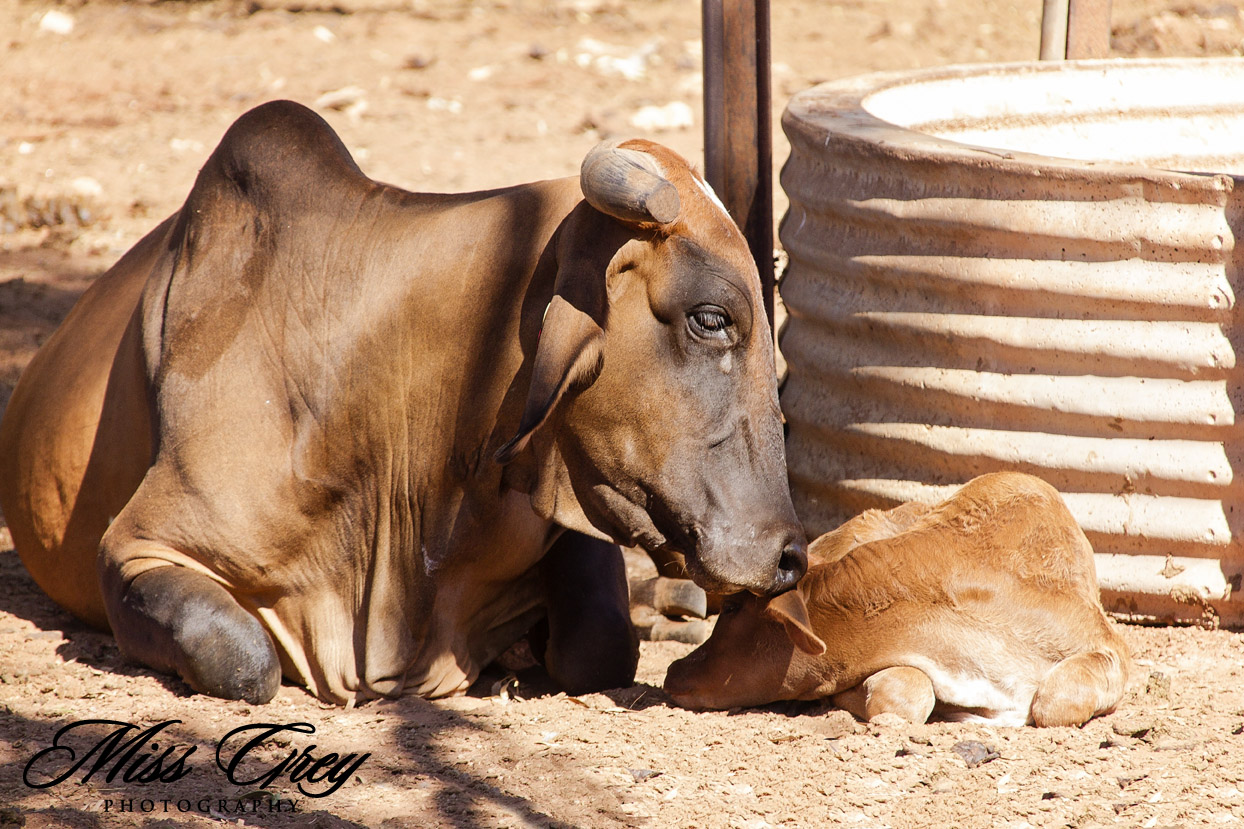 Incredible mothers.
Incredible mothers.
We’ve had every extreme of dehydration, some too far gone and others making a remarkable recovery, seemingly against all odds.
A few lessons we’ve learnt along the way have helped us increase the odds in their favour:
- Rehydrate slowly. This is THE most important part, in my experience. Also one of the hardest rules to stick to. Like humans, if they are rehydrated too fast, their system can’t handle it and 2 days later, you’ll be wondering where you went wrong as you say goodbye. But there is no better feeling than seeing a perishing calf latch onto that bottle for dear life and pulling them up after a seemingly tiny feed takes incredible restraint. I get it, I’ve been there. I’ve overfed and the calf has paid the price. This is very much a cruel to be kind moment. No cheating – it’s not worth it. Slow rehydration with small feeds, down to 100ml every hour of electrolytes to start, slowly increasing as time goes on. We were given a great electrolyte recipe by a vet which has stood the test of time here. 1L of warm water, 1 Tab Glucose, 1 tsp of salt & 1/4 tsp of citric acid. Tape it to the fridge.
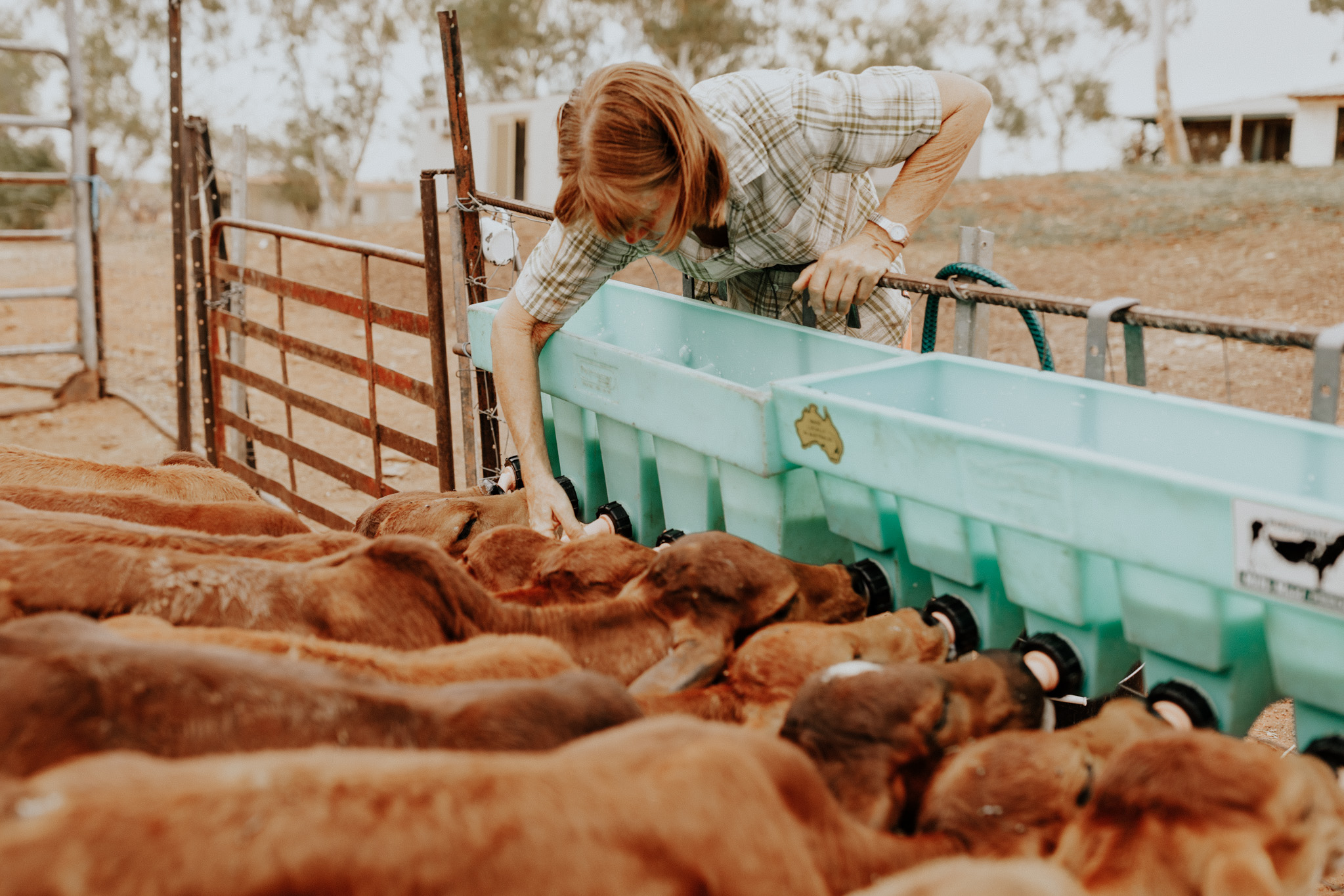 Slow and steady when it comes to rehydration.
Slow and steady when it comes to rehydration.
2. There are some handy antibiotics and drugs available to help upset stomachs and scours. Ideally you can get them back without the medical intervention but sometimes there is more going on than we can see.
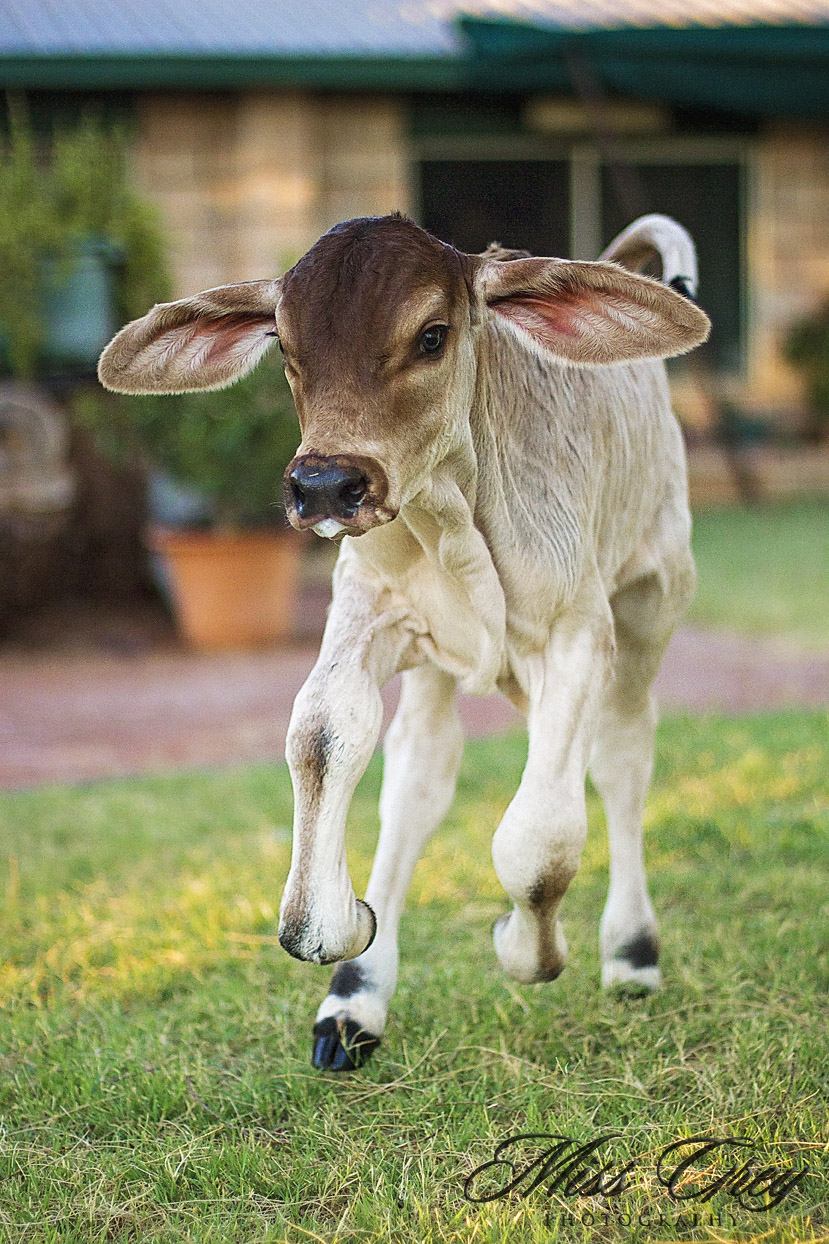 Feeling good & trying to play.
Feeling good & trying to play.
- Joint ill is the devils work. It is absolutely heartbreaking as it takes a beautiful calf out at the knees, literally. Cord infections need to be kept on top of, with regular cleaning with salt water and applications of betadine. Left untreated, they take the infection up into the organs and into the joints. Once it’s there, it’s game over. I had a calf we called the Comeback Kid who over 3 weeks fought valiantly against the infection that finally had the last laugh.
- The personality of the calf and its desire to live can truly make all the difference. We’ve had calves lay down and give up with a seemingly mild set back while others struggle against all odds and give it their all. These are the hardest ones to pull the trigger on, even when you know they have insurmountable odds stacked against them. While they are still fighting for the chance to live, you want to be in the trenches with them but sometimes no amount of will is enough and your kindest gesture is the mercy of ending the pain.
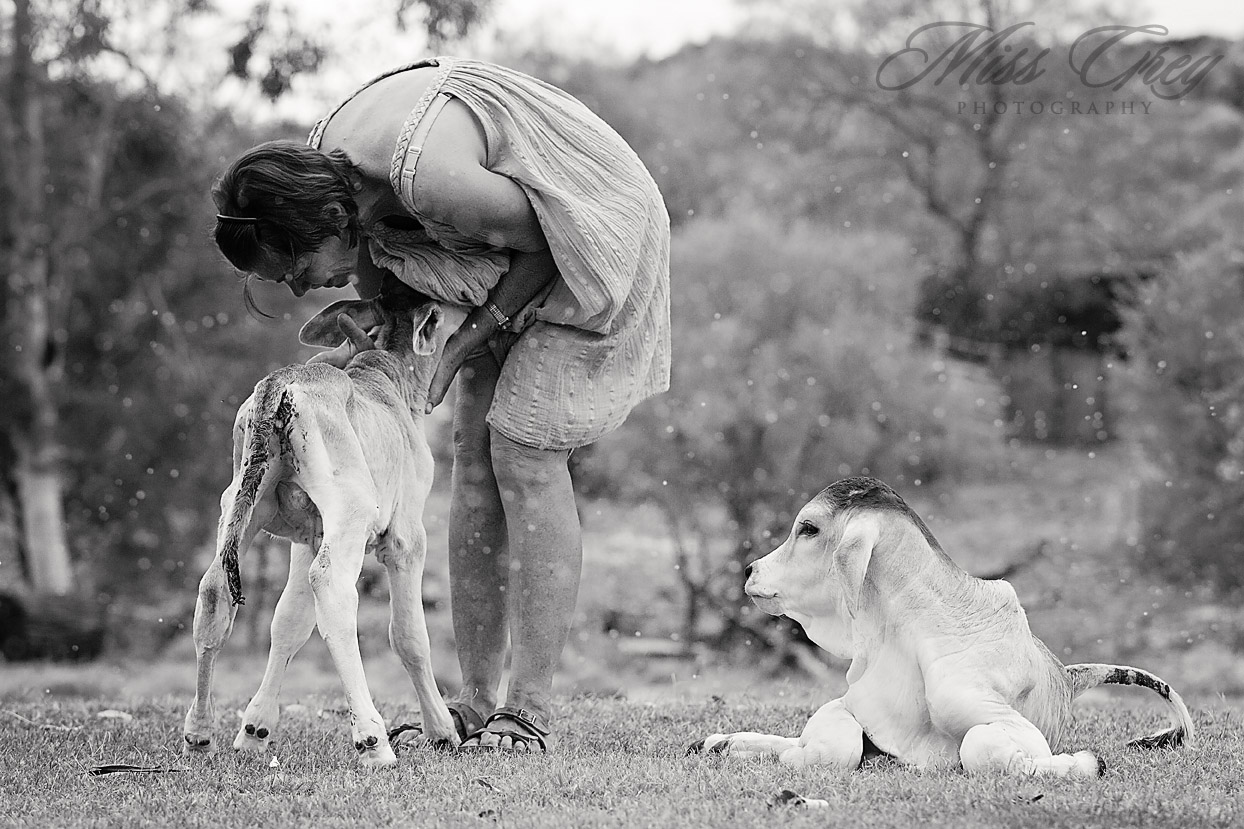 Susan with two calves who stacked it while tearing around feeling good.
Susan with two calves who stacked it while tearing around feeling good.
- Dingoes/wild dogs could really do with improving their oral hygiene. Their bite can lead to horrific infections that don’t seem to quit. The teeth puncture and tear, creating pockets for the infection to establish and spread. They often chew off the ears (we’ve had quite a few named Earless, original huh?), take chunks from the back legs or the worst, puncture in around the front shoulder joint. Right now, we are treating a poddy, Charleville, for dingo bites and we are playing a waiting game to see if the antibiotics beat the infection before it established in his shoulder.
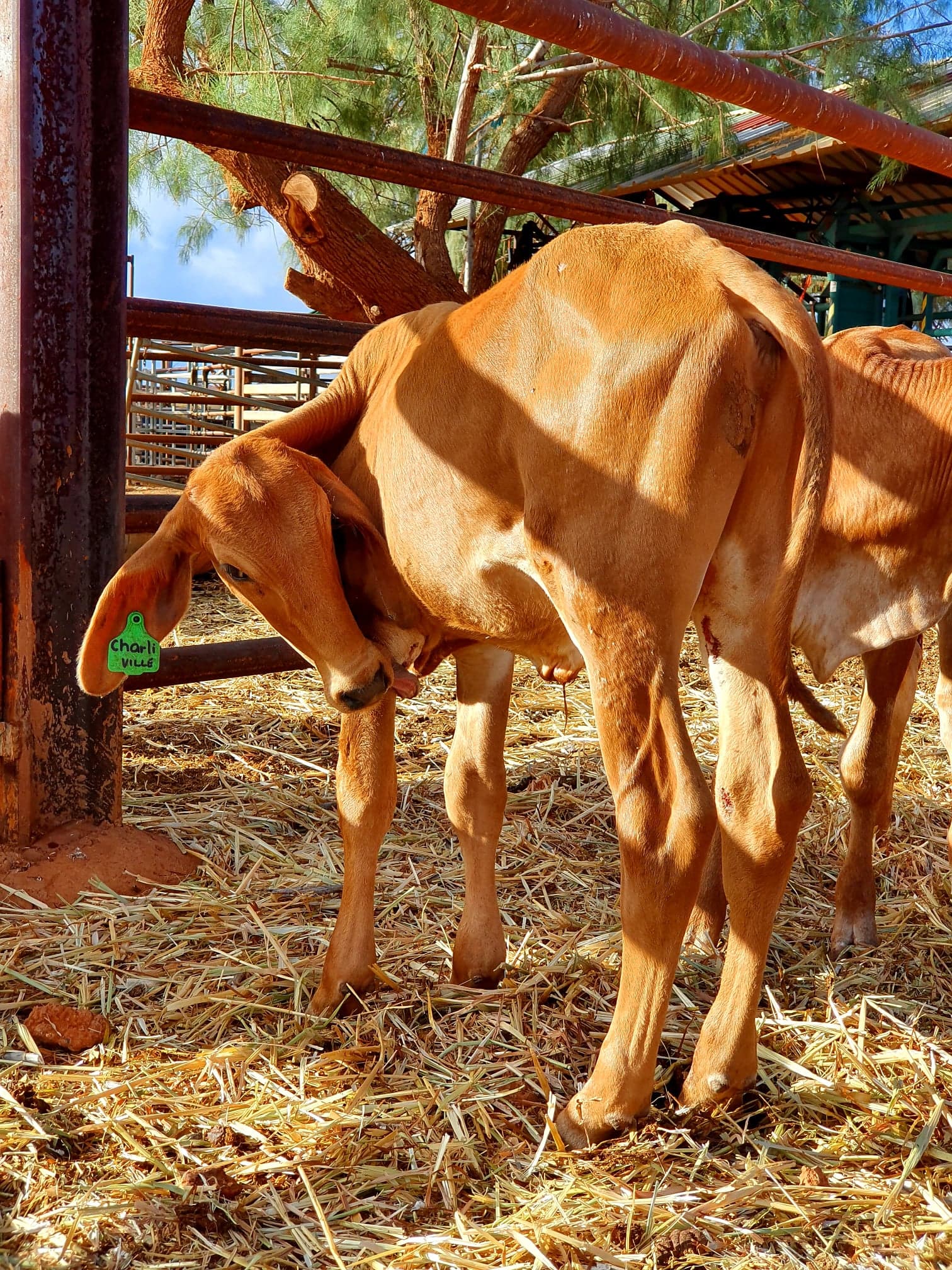 Charlie attending to his shoulder wound between my ministrations.
Charlie attending to his shoulder wound between my ministrations.
Last year, due to drought that is holding strong into 2020, we made the call to pull all the calves off our breeder cows to help them get through the dry season. We raised over 200 calves on bottles and many more on pellets. The heartbreaking drought conditions were so prevalent across so much of Australia and still are in a lot of areas. We wanted our eastern neighbours who have done it so tough for so long to know we are thinking of them through this and named last year’s calves after drought declared towns and areas. Still picking up a few calves off the run in the new year, we dedicated this year’s poddies to the bushfire affected towns. It was heartbreaking to see so many double ups.
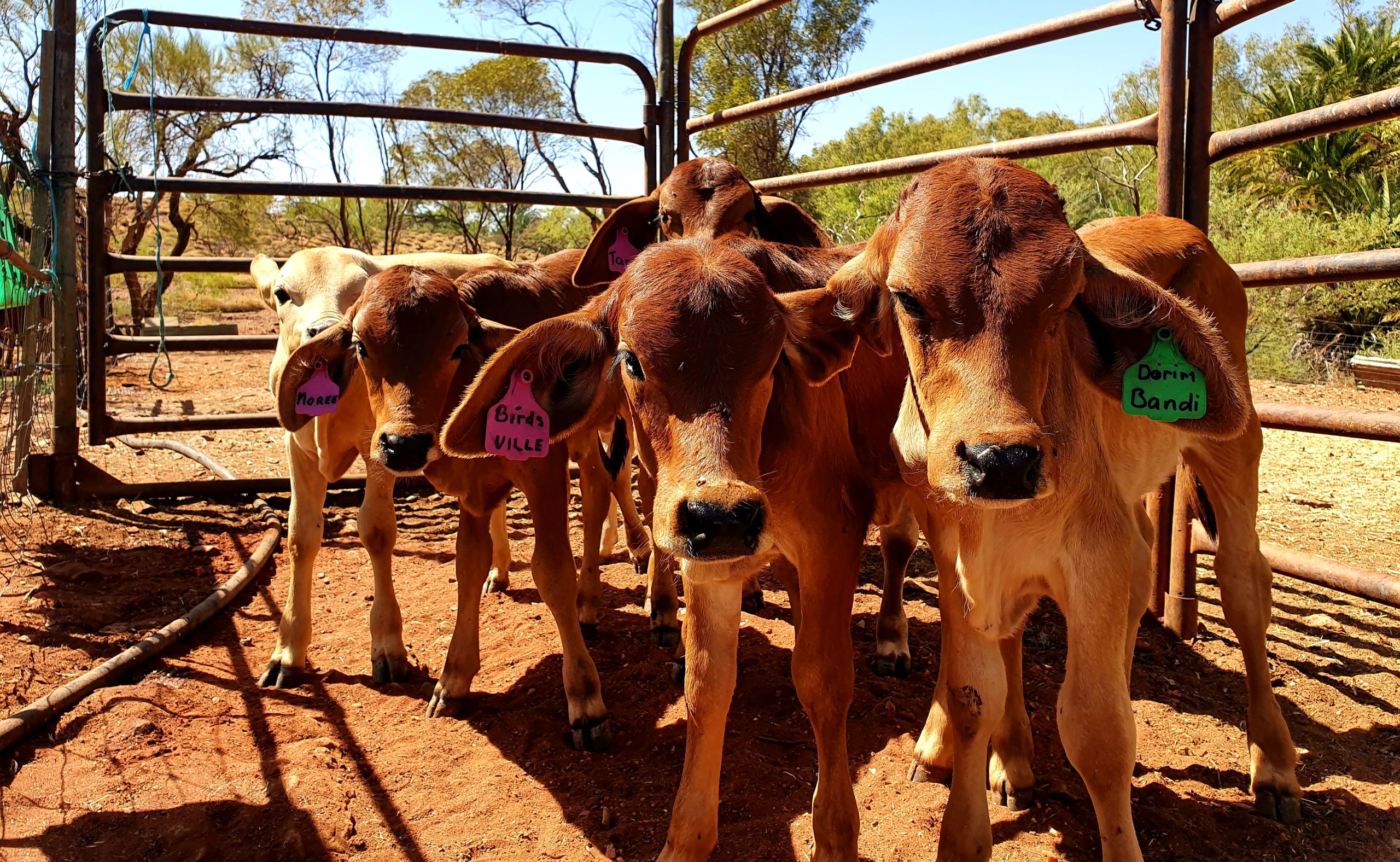 Drought calves named after the towns & regions over east battling the same fight.
Drought calves named after the towns & regions over east battling the same fight.
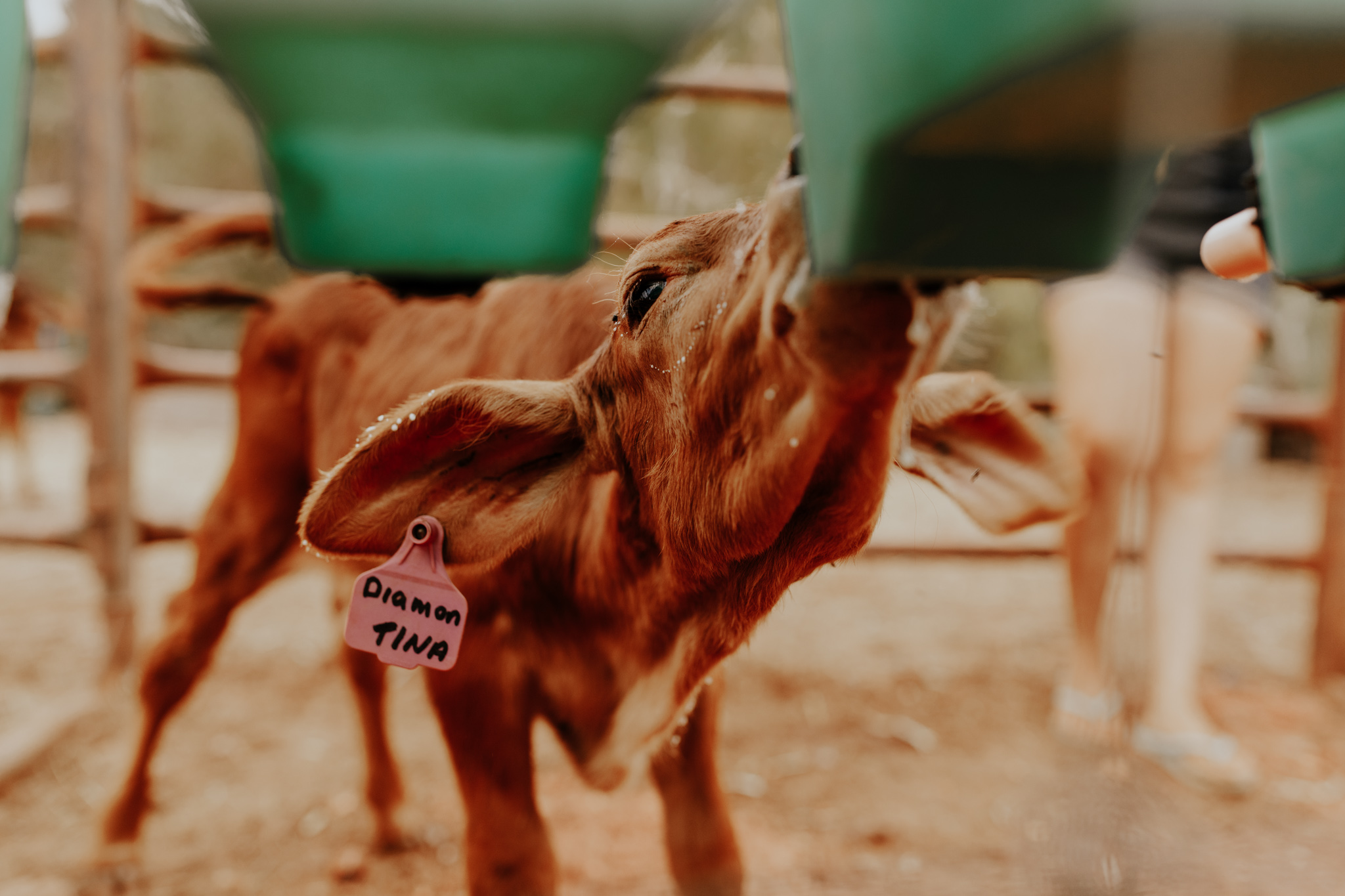
You win some battles and you lose way too many. The economics of it don’t generally add up, but we do it anyway. We feel we owe those kids that we have been directly responsible for bringing into this world the best chance a decent life, until it’s time for them to take their place in the food chain. Though there is always a special few who find themselves a permanent place in the paddocks to live out their days.
